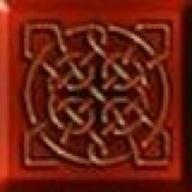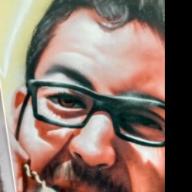Hi, How are you all ? I was Just wondering If anyone Know what I need to do to become a philosophical Writter ? Thank You all ...?
2016-01-31 1:41 pm
回答 (10)
2016-01-31 1:49 pm
Learn to spell writer?
2016-01-31 6:41 pm
First, learn the basics.
I always recommend an essential set of 2 books to read, called The Great Ideas of the Western World. (Doesn t the title give you a hint?) The books are also called the Syntopicon. You can look them up in the library computer either way.
You can only get the Syntopicon in a library because it s part of a $2000 set of 66 books; or I got mine used, cheap, at a book store. (The 2 books, not the big set! I got mine for $5 each. )
Those two books will give you literally hundreds of more must-read choices. They are arranged by alphabetical subjects (102 of them), not by the philosophers names. The chapters are short--about 12 pages--but you will be fascinated beyond belief by things men said that you never knew.
The best way to learn real philosophy is to step back and take a grand, wide view that quickly outlines a topic. Otherwise you might start with Plato (for an example) but not catch the connection between his "Forms" and Aristotle s "essene" or Kant s Noumena. So you read the Syntopicon and the connection is made for you.
What if you wanted to read Plato s Republic? You ll get a better understanding of his ideas after reading the Syntopicon. His ideas of government can be found in the chapters Revolution, Monarchy, Oligarchy, Opposition, Citizen, Democracy, Government, and others, right along side comments by other philosophers that puts it all into perspective.
Also I like these sites for beginners:
http://www.philosophypages.com/index.htm
http://www.philosophybasics.com/index.ht...
http://www.importanceofphilosophy.com/
This is the Wikipedia page about the Syntopicon
http://en.wikipedia.org/wiki/A_Syntopico...
I always recommend an essential set of 2 books to read, called The Great Ideas of the Western World. (Doesn t the title give you a hint?) The books are also called the Syntopicon. You can look them up in the library computer either way.
You can only get the Syntopicon in a library because it s part of a $2000 set of 66 books; or I got mine used, cheap, at a book store. (The 2 books, not the big set! I got mine for $5 each. )
Those two books will give you literally hundreds of more must-read choices. They are arranged by alphabetical subjects (102 of them), not by the philosophers names. The chapters are short--about 12 pages--but you will be fascinated beyond belief by things men said that you never knew.
The best way to learn real philosophy is to step back and take a grand, wide view that quickly outlines a topic. Otherwise you might start with Plato (for an example) but not catch the connection between his "Forms" and Aristotle s "essene" or Kant s Noumena. So you read the Syntopicon and the connection is made for you.
What if you wanted to read Plato s Republic? You ll get a better understanding of his ideas after reading the Syntopicon. His ideas of government can be found in the chapters Revolution, Monarchy, Oligarchy, Opposition, Citizen, Democracy, Government, and others, right along side comments by other philosophers that puts it all into perspective.
Also I like these sites for beginners:
http://www.philosophypages.com/index.htm
http://www.philosophybasics.com/index.ht...
http://www.importanceofphilosophy.com/
This is the Wikipedia page about the Syntopicon
http://en.wikipedia.org/wiki/A_Syntopico...
2016-01-31 4:05 pm
Truthfully speaking, if you wanted to be a genuine philosophical writer, first and foremost, you need to be a philosopher yourself. Which means you need much time to spare attending to answer questions regarding the reality of your self, of what truly you are. Hence you need to realize and understand every aspect of yourself, not only externally but inwardly as well.
Only then could you be wise enough to helping your own self from the illusory norms of humanity regarding the truth of life and of yourself, of your divinity, of what you truly are. After which, you can reason eloquently how it is to be free, to live peacefully, and hence to be happy without really looking for happiness. Happiness comes of its own accord when you are already free of illusions.
Then to write a book about your philosophical insights regarding reality of the self and to the seemingly elusive "true meaning of life", is all at your own disposal. And to reassure you that whatever it is that you may hopefully find regarding that philosophical truth, it is not other than the truth which the the great philosophers have been chorusing upon us, for there is only one and the same truth to share, which is universal and absolute, yet eternal in essence.
And when you have finally decided to write that book, you can always bring any topic to relate to reality. You can explain the relation of anything under the sun to such reality, for there is no other way our life is leading us to, but to the truth. And in any aspect of human life, truth is what we need, and truth is what always prevails eventually, both relatively and absolutely.
Only then could you be wise enough to helping your own self from the illusory norms of humanity regarding the truth of life and of yourself, of your divinity, of what you truly are. After which, you can reason eloquently how it is to be free, to live peacefully, and hence to be happy without really looking for happiness. Happiness comes of its own accord when you are already free of illusions.
Then to write a book about your philosophical insights regarding reality of the self and to the seemingly elusive "true meaning of life", is all at your own disposal. And to reassure you that whatever it is that you may hopefully find regarding that philosophical truth, it is not other than the truth which the the great philosophers have been chorusing upon us, for there is only one and the same truth to share, which is universal and absolute, yet eternal in essence.
And when you have finally decided to write that book, you can always bring any topic to relate to reality. You can explain the relation of anything under the sun to such reality, for there is no other way our life is leading us to, but to the truth. And in any aspect of human life, truth is what we need, and truth is what always prevails eventually, both relatively and absolutely.
2016-01-31 2:38 pm
To be published in academic journals or by academic presses, you must have a PhD in Philosophy. Your paper or book will be judged by your peers and they will determine whether it might add anything to the body of knowledge.
To write philosophical non-fiction aimed at non-academic readers, there are no educational qualifications. All you need is the idea and to write it well.
To write philosophical non-fiction aimed at non-academic readers, there are no educational qualifications. All you need is the idea and to write it well.
2016-01-31 1:55 pm
Well for one you need to learn how to spell.obviously your education is rather limited,you need extensive background in many area,s to understand and get your point across.
2016-02-03 6:06 am
Step 1: Learn how to spell.
Step 2: Read a lot; you know start with Kant, Plato, Aristotle ...
Step 3: Go to college. There's a lot more than what you think. Logic, mathematics all kinds of school stuff you need to learn.
Step 2: Read a lot; you know start with Kant, Plato, Aristotle ...
Step 3: Go to college. There's a lot more than what you think. Logic, mathematics all kinds of school stuff you need to learn.
2016-02-01 4:35 am
Just write down 1000 words . Now exam them I bet you have just written some philosophy . Maybe good philosophy maybe bad but my feeling is it will be philosophy
2016-01-31 6:41 pm
Not to put too fine a point on it, but one thing would be to master your spelling and grammar skills.
2016-02-01 4:26 am
Start by taking the second t out of writer.
2016-01-31 2:38 pm
You must first learn to communicate abstract ideas, which may involve using words differently.
收錄日期: 2021-04-21 16:35:39
原文連結 [永久失效]:
https://hk.answers.yahoo.com/question/index?qid=20160131054118AAMpsLu


